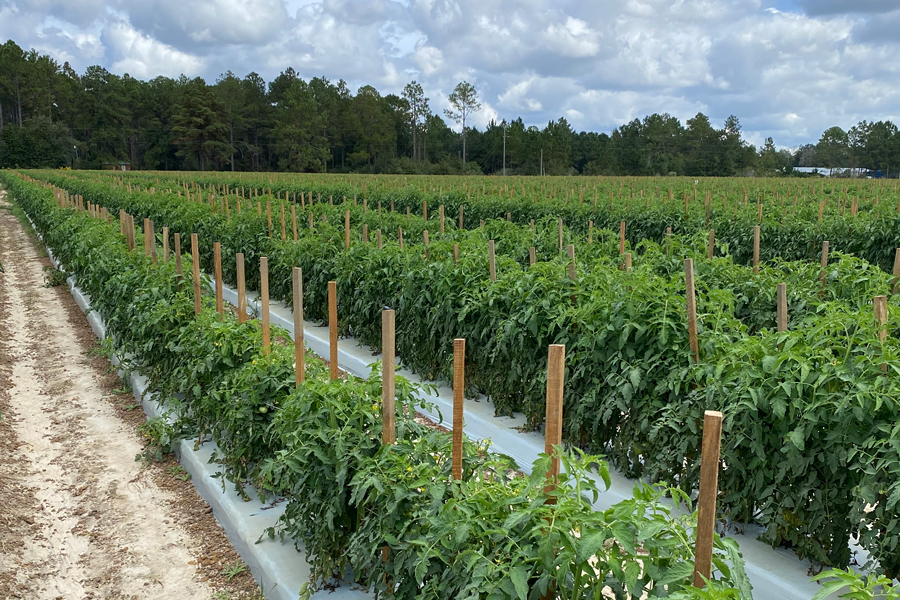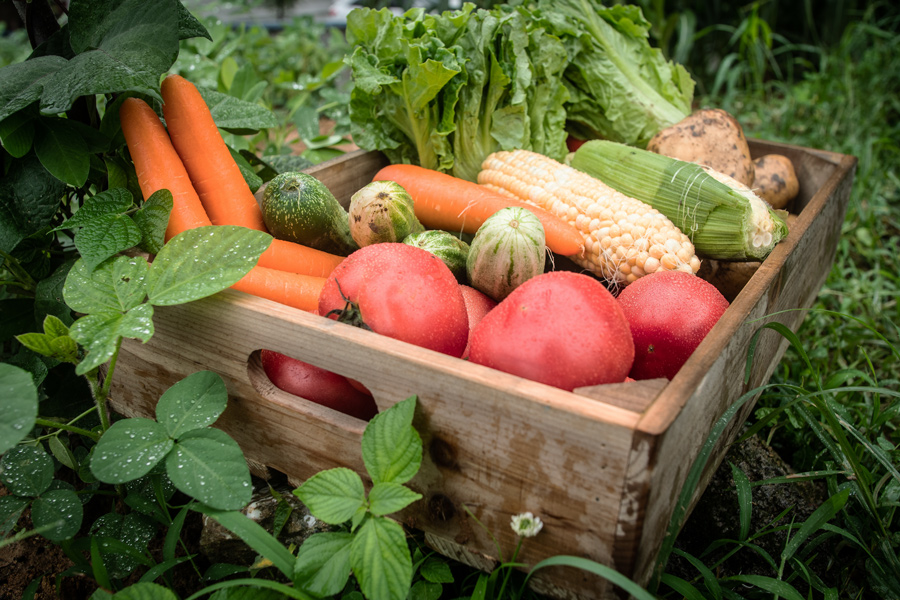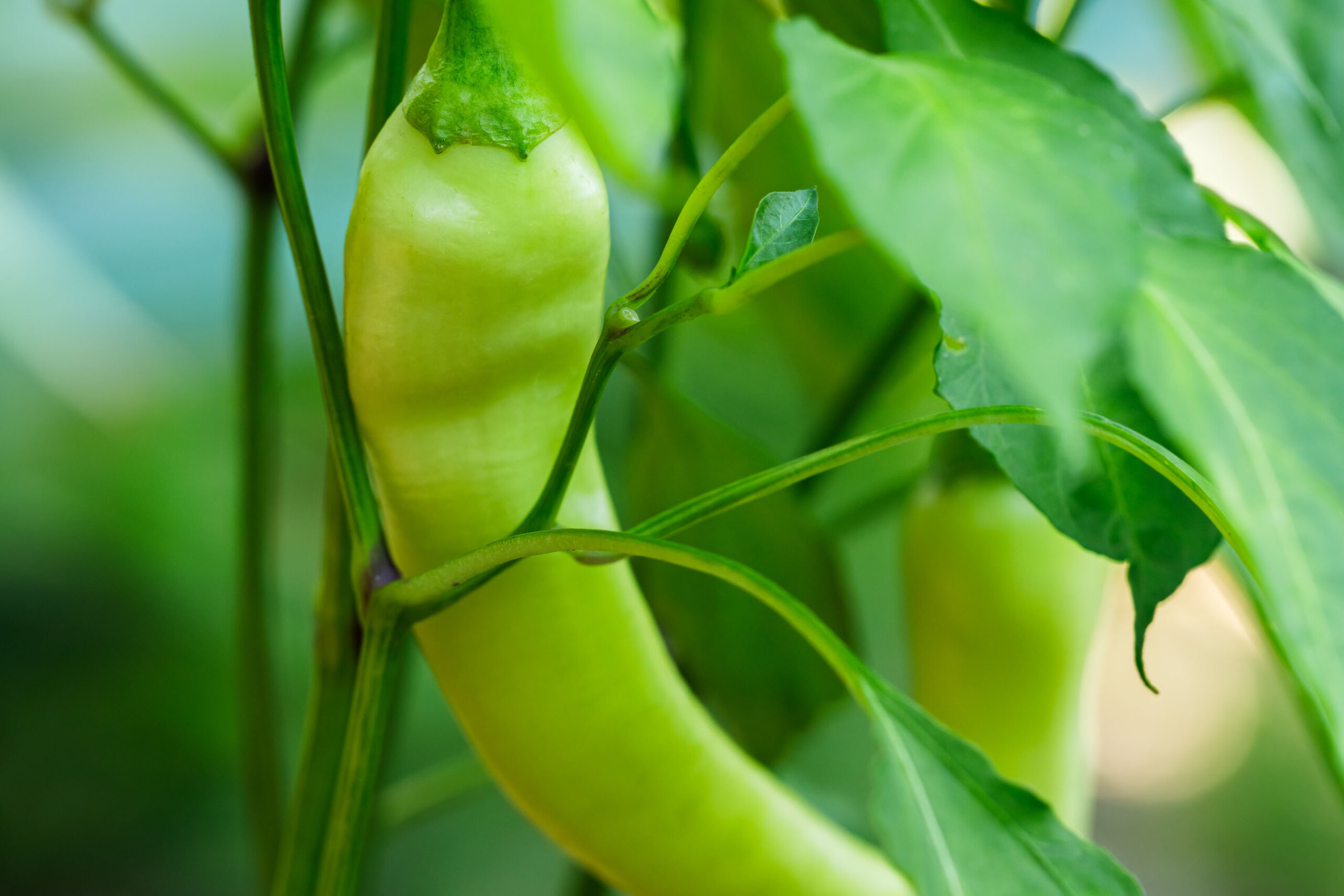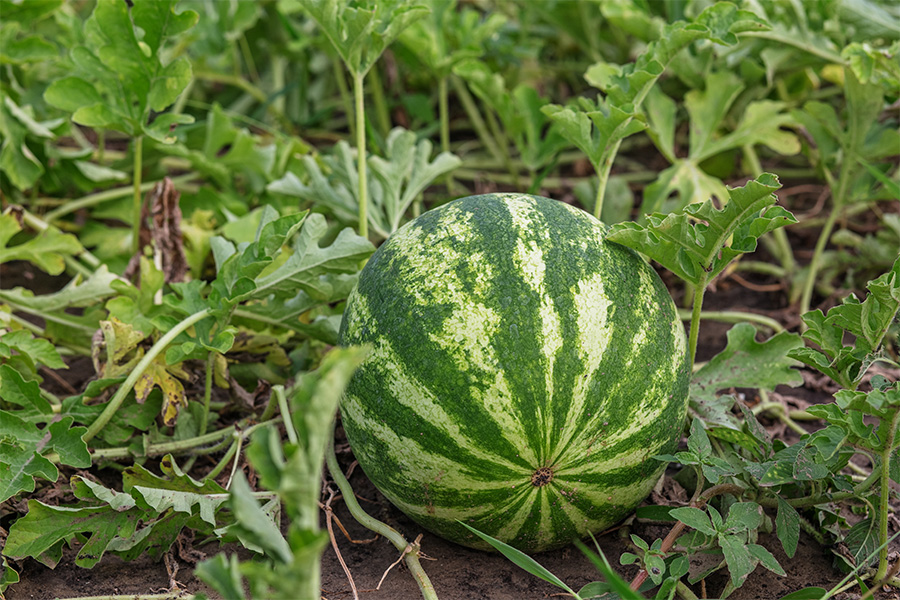Watermelons
-

C 1035
Home Garden Watermelon
Learn all about growing watermelon in the home garden, including transplanting, starting seeds, soil preparation, culture and fertilization, harvesting, storage and use, and problems. It also includes a list of recommended varieties for Georgia.
Bob Westerfield and Malgorzata Florkowska
|
-

Watermelon is a warm-season crop related to cantaloupe, squash, cucumber and pumpkin. Watermelons can be grown on any well-drained soil throughout Georgia but are particularly well adapted to the Coastal Plain soils of South Georgia. Watermelons will continue to be an important part of vegetable production in the state. Increases in average yield per acre will continue as more growers adopt plastic mulch, intensive management and new hybrid varieties.
Timothy Coolong and Ted McAvoy
|
-

Root-knot nematodes are highly adaptable, obligate plant parasites (parasites that cannot reach adulthood without a host) that attack plant roots and establish a prolonged relationship with their hosts. There are three common species of root-knot nematodes known to parasitize watermelon in the U.S.: the southern root-knot, M. incognita, the peanut root-knot, M. arenaria, and the Javanese root-knot, M. javanica. The southern root-knot nematode is ranked first in terms of negative impact on watermelon production, particularly in warm temperate climates. Many watermelon fields in Georgia are infested with one or more species of root-knot nematodes.
Josiah Matai Koki Marquez, Fereidoun Forghani, and Abolfazl Hajihassani
|
-

This resource describes whiteflies and the damages they cause in cucurbit crops, and offers recommendations for cucurbit crop varieties for fall season production in southern Georgia that are resistant or tolerant to silverleaf disorder and whitefly-transmitted viruses.
Nirmala Acharya, Ted McAvoy, Sudeep Bag, and David G Riley
|
-

A soil test is a chemical technique used to determine the status of available nutrients in a soil sample. It is a common method used to predict how soils will react to the addition of lime or fertilizer and calculate how much of each is required for crop production.
Timothy Coolong, Ty Torrance, Ted McAvoy, and Manisha Kumari
|
-

This circular contains the fundamentals of watermelon irrigation scheduling using the crop water demand method. Decisions regarding the timing, frequency, and amount of water required for a crop are some of the most critical factors in vegetable production. There are numerous irrigation scheduling strategies employed by growers, but the crop water demand method of irrigation management is one of the most reliable and precise ways to schedule irrigation. This method adjusts irrigation events using the crop evapotranspiration, or ETc.
Timothy Coolong, Laurel Dunn, Andre Luiz Biscaia Ribeiro da Silva, and Will Gay
|
-

This publication lists vegetable variety recommendations for the state of Georgia. Most of these varieties have been trialed and grown successfully in the state. These are not the only varieties that can grow well in Georgia but provide new gardeners with a starting point to increase their chances of success. Gardeners may need to search print catalogs and online to find the vegetables they are looking for, as local garden centers may not always carry the varieties listed here.
Bob Westerfield
|
-

This publication discusses heirloom vegetable choices and some of the common issues that growers may encounter when growing heirloom vegetables in a home garden setting. Additional author: Whitney Richardson, University of Georgia Center for Urban Agriculture, with technical assistance from Makenzie English, University of Georgia Department of Horticulture Program Assistant.
Bob Westerfield
|
-

Watermelon production faces many challenges in Georgia. The warm, humid climate favors numerous foliar diseases. Because of the long history of watermelon production in Georgia, soilborne diseases such as Fusarium wilt also present challenges to growers. This bulletin will provide background on disease symptoms, pathogen survival and infection, pathogenic races, and management.
Timothy Coolong and Bhabesh Dutta
|